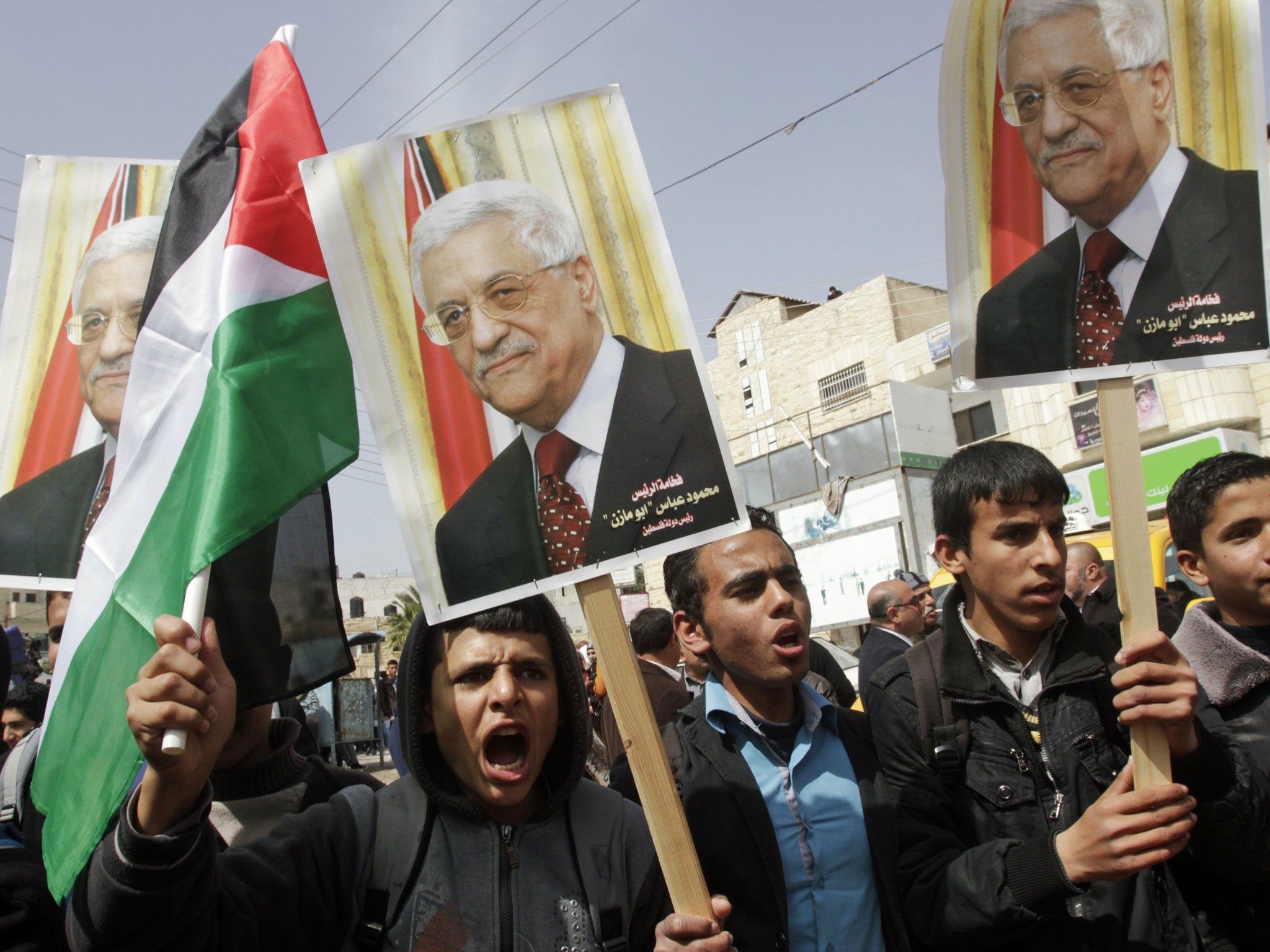Palestinian President Mahmoud Abbas likely to tell Barack Obama he is unwilling to compromise further in peace process with Israel when he visits Washington
Palestinian President’s meeting with US leader reflects his people’s concerns over Israel

When Palestinian President Mahmoud Abbas meets US President Obama at the White House today to discuss the troubled US-brokered peace efforts with Israel, his message is likely to be simple: we are at the limits of our flexibility.
With Israel and the Palestinians miles apart on core issues and less than six weeks remaining for US Secretary of State, John Kerry, to find a compromise to enable agreement on a framework to extend the negotiations, the Palestinians are worried they will be the ones pressured to concede, since that is politically easier for the administration than squeezing Israel and colliding with its powerful US lobby.
“There’s nothing more to compromise,” Abdullah Abdullah, deputy commissioner for international relations of Mr Abbas’s Fatah movement, said. “Further compromise means denial of our rights and we won’t do that. President Abbas will stick to his positions.”
However, holding fast is no simple task. The Palestinian leader is anxious to avoid being blamed for a collapse of the process and also needs to keep vital European and American money flowing to the Palestinian Authority.
“We have compromised on every subject,” Mr Abdullah said. Among the examples he cited were borders – by agreeing there could be limited land swaps between the Palestinian state and Israel, and Jerusalem – by agreeing the city would be open and accessible to the adherents of the three monotheistic religions. The Palestinians also believe they made sufficient concession regarding the West Bank’s border with Jordan, by agreeing to an international peacekeeping presence there. Israel wants its own soldiers there.
On Jerusalem, the Palestinians are hoping the US will recognise that the capital of their future state will be centred in the heart of East Jerusalem and not in a peripheral suburb.
Nor will President Abbas accept the Israeli demand that he go beyond the Palestine Liberation Organisation’s recognition of Israel in 1993 and agree to recognise Israel as the “nation state of the Jewish people”, Mr Abdullah said. The Palestinians say this would undermine the standing of Israel’s Arab minority and negate the rights of refugees who fled or were expelled at Israel’s creation. But Israel is not about to drop that demand, even after Mr Kerry last week said Israeli leaders were making a “mistake” by raising it repeatedly.
In an interview with Israel’s Channel Two on Saturday, Israeli Defence Minister Moshe Yaalon said Mr Abbas is “not a partner” to a final peace agreement because of his refusal to accord such recognition and that there can be no deal without it.
Despite these seemingly insurmountable differences, Mr Abbas is willing to extend the negotiations provided Israel freezes settlement construction in the occupied West Bank and makes “gestures” concerning Palestinian prisoners it is holding, Mr Abdullah says. An Israeli official, who requested anonymity, ruled out a settlement freeze, saying: “We’ve done that in the past and it didn’t really help.”
The official accused the Palestinian side of “not engaging” in the peace process and said he hoped President Obama could persuade them to face up to the need to make concessions on the Jewish state issue, security arrangements, refugees and Jerusalem.
But he ruled out any redivision of Jerusalem. And he signalled it is unlikely the government will intervene to stop Jewish settlers taking over a strategic property and establishing a seminary in the heart of East Jerusalem’s commercial district, an area Palestinians see as a crucial part of their future capital that was previously not penetrated by settlers.
“If you expect the government to say it’s forbidden for Jews to buy property in Jerusalem, that is not logical,” the official told The Independent.
Join our commenting forum
Join thought-provoking conversations, follow other Independent readers and see their replies
Comments